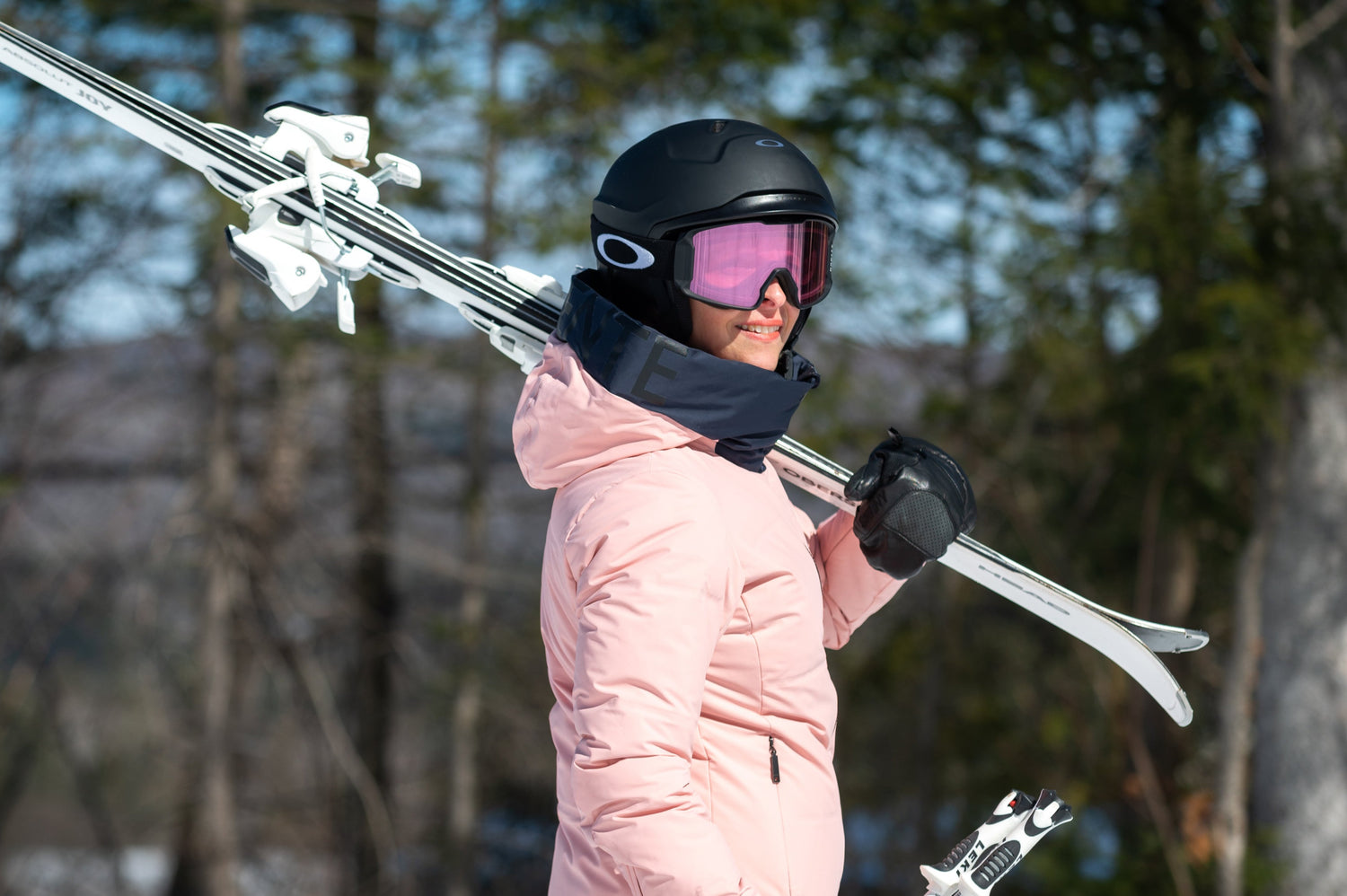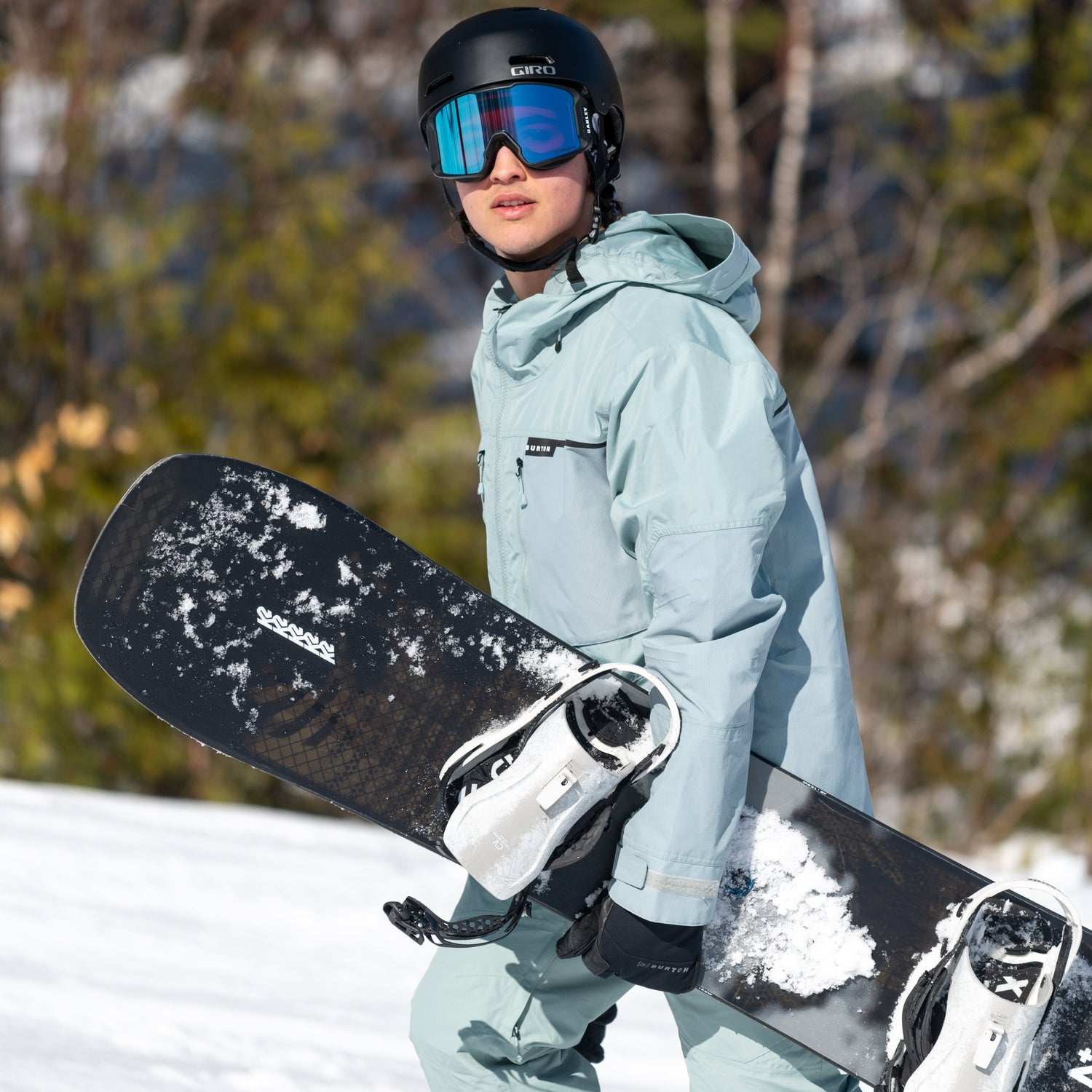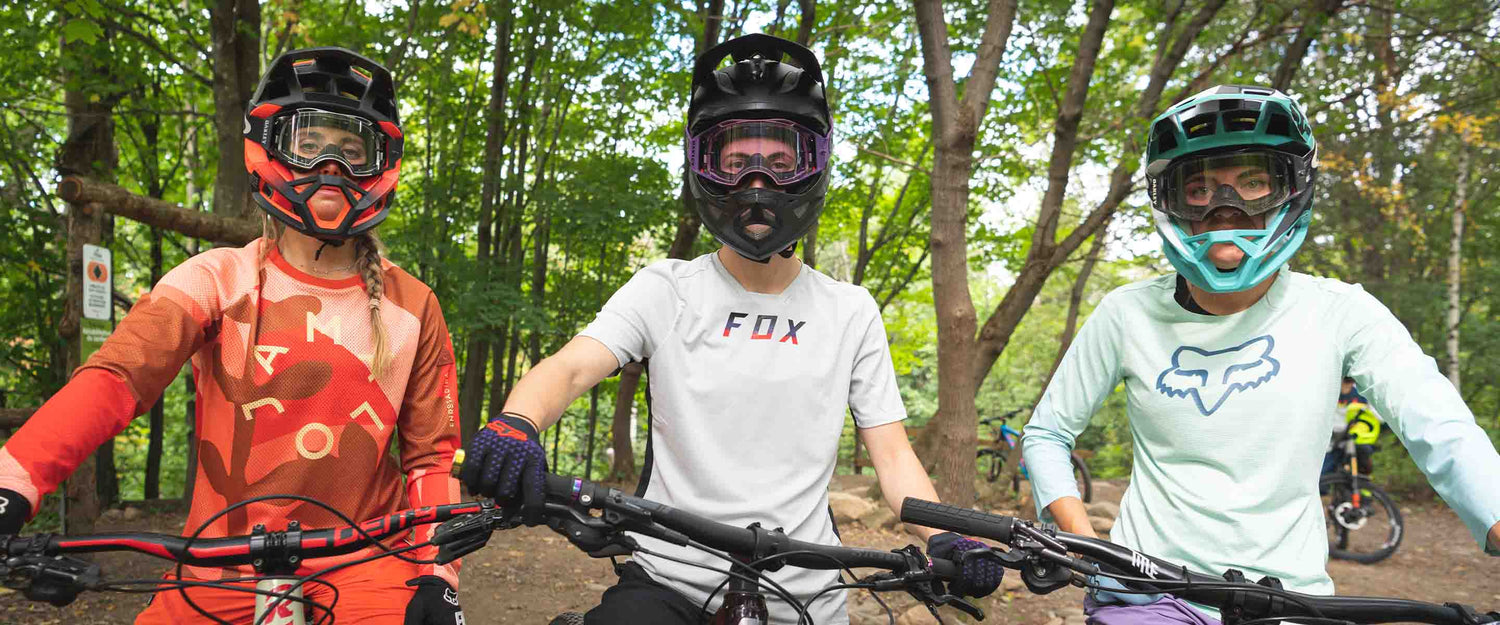Mountain Bike Helmets
Whether you ride downhill or cross-country, you need to wear a mountain bike helmet. Helmets are built with a moulded shell and protective layer of dense foam. This combination protects the head from impacts and rotational motions in the helmet during a fall.
Plus, mountain bike helmets have a visor that blocks the sun’s rays. Because mountain biking is a high-intensity sport, helmets have vents for air circulation that keep your head cool and well protected against crashes.
Need help choosing your bike helmet? Our article Choosing the Right Bike Helmet can help you out.

Full-Face Helmet
Some helmet models offer complete protection. Mountain bike full-face helmets are mostly worn by downhillers to protect their faces and heads. They’re bulkier and hotter than classic helmets, so they’re less recommended for long climbs. Their natural habitat is the bike park.
However, some models are now equipped with a removable chin bar that makes them more versatile.
Mips Technology
Different mountain bike helmet manufacturers regularly add Mips technology into their helmets’ build. This system is a low-friction layer between the helmet’s padding and protective foam. Mips technology helps protect the brain by reducing rotational motions during crashes that can cause serious brain damage. If you want to know more, check out our article on Mips technology.

Eye Protection
Riding trails in the mountains is much different from riding on paved roads. Wearing mountain bike glasses protects your eyes from sunlight and dust, debris and branches, which makes them an important piece of mountain bike gear. Moreover, the lenses offer a sharper, more precise field of vision. Many bike glasses offer interchangeable lens technology.
If you explore trails that are often bright and dusty, you’ll enjoy wearing mountain bike sunglasses. Especially if you’re behind another cyclist who’s tearing up the berms!
Complete your full-face mountain bike helmet with downhill frames. They’re ideal for covering the upper face. In addition, their design, which is like that of ski goggles, will fit perfectly with your helmet.
Our article on biking glasses can help you choose the best type of frame for you.

Biking Pads
Mountain bike knee and elbow pads are critical. Most cyclists wear knee guards. These pads made of stretchable fabric have a hard part that covers the knee and sometimes part of the shin. Mountain bike elbows pads have the same design to protect the joint.
Mountain Bike Gloves
You’ll be hot going up hill; you don’t want your hands to be slippery on the way down. Bike gloves have two purposes. The first is to provide the best hold on the grips by absorbing moisture. The second is to protect your hands. Some models of mountain bike gloves have pads on the back of the hands to increase protection.

Padded Bike Shorts
Liner shorts are a must. They offer support and comfort thanks to the chamois, a section of fabric sewn or glued to the crotch. Chamois absorbs vibrations effectively, which is especially important during your longest rides. That said, some people choose not to wear them. It’s a matter of comfort and preference.
In addition, some models of liner shorts, such as the Racer Profile Short 2, have extra padding on the hips. They’re perfect for those who enjoy hitting the bike park.

Body Armour and Neck Brace
When you get into downhill mountain biking, that’s when you need some additional protection. Complete your full-face helmet with body armour that protects your back, shoulders and chest. Some more breathable models, such as the Fox Baseframe Pro SS can be worn for enduro riding and under a bike jersey thanks to its rather minimalist design.
You should also consider wearing a neck brace if you’re tackling big jumps and riding high-speed descents. This piece of equipment helps stabilize your neck during crashes and can prevent injuries.

Mountain Bike Packs and Hydration Bladders
Mountain bike backpacks can provide some protection when you crash. They serve several purposes other than carrying your essentials and keeping you hydrated. In addition, you can store a personal first aid kit so that you’ll be prepared for minor injuries.
Before you get out on the trails, remember that the more you ride technical or steep terrain, jumps, and other aggressive features, the more protective mountain bike gear you’ll need.




